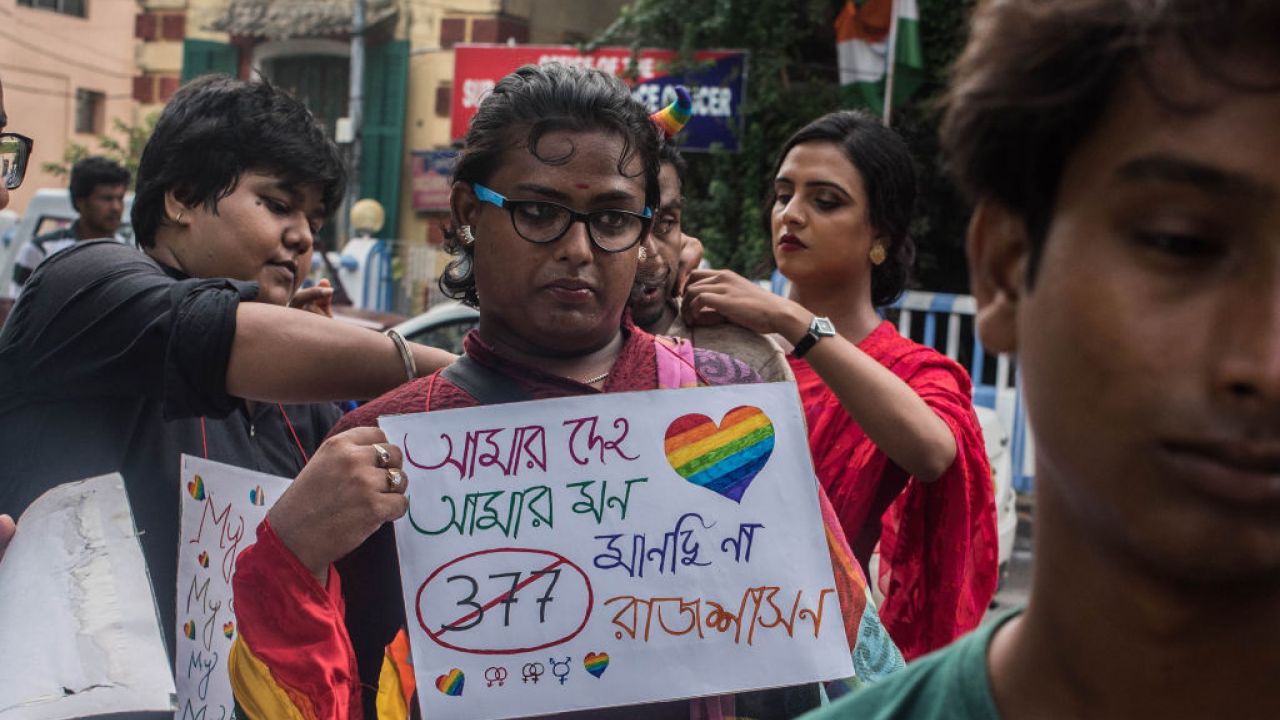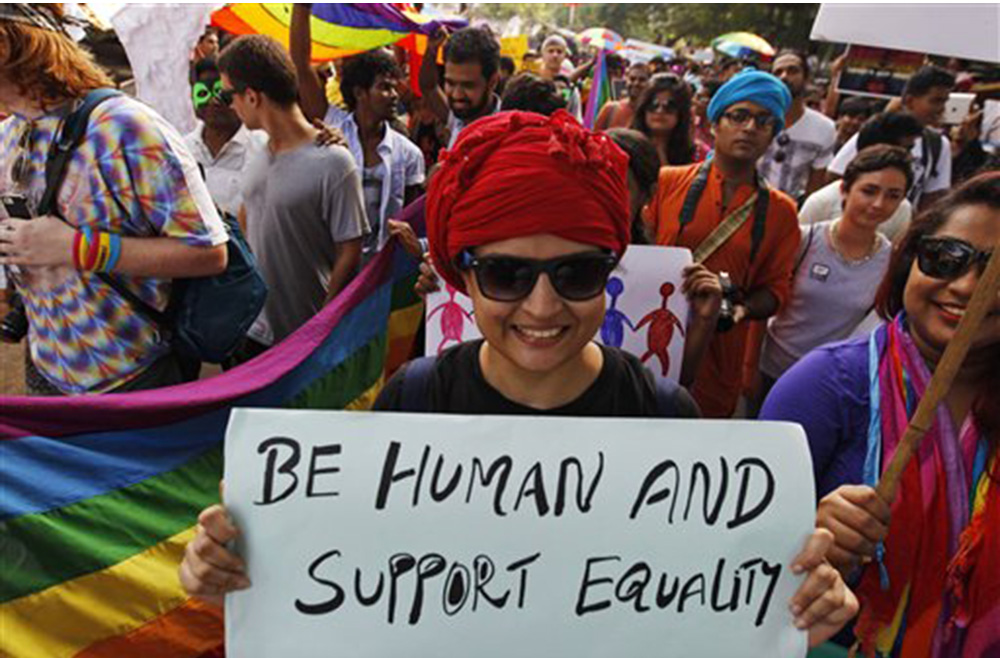The Supreme Court of India announced Monday that it would reconsider its 2013 ruling upholding Section 377, a colonial-era law criminalizing same-sex sexual relations. A promising sign, the Court also asked the government to respond to a petition from five LGBTQ people who said they live in fear of police because of their identities.

A protest against Section 377 in July, 2017. Getty Images
Section 377 prohibits “carnal intercourse against the order of nature with any man, woman, or animal,” but the Court explained Monday, “What is natural to one may not be natural to others,” adding, “A section of people or individuals who exercise their choice should never remain in a state of fear.”
In 2009, the High Court of Delhi ruled against the law, but in 2013, the Supreme Court set aside that ruling, keeping the law in place. In addition to the advocacy and discussion that followed that setback, subsequent rulings in favor of transgender equality and, most recently, establishing privacy as a fundamental right have help set the stage for the Court to revisit the law.
Section 377 dates back to 1860 when Britain ruled India as a colony and comes with a punishment of up to 10 years in jail. For more than half the countries in the world that have such a sodomy law, British colonialism was the origin, and almost 70 percent of those British sodomy laws are still in effect. Prior to colonial imposition of Christian sexual values, India had a long history of culturally embracing the transgression of gender norms.
The law is not commonly enforced, but it is used to harass and blackmail gay people, who then cannot report the blackmail because they fear persecution under the law.

Leave your comments
Login to post a comment
Post comment as a guest